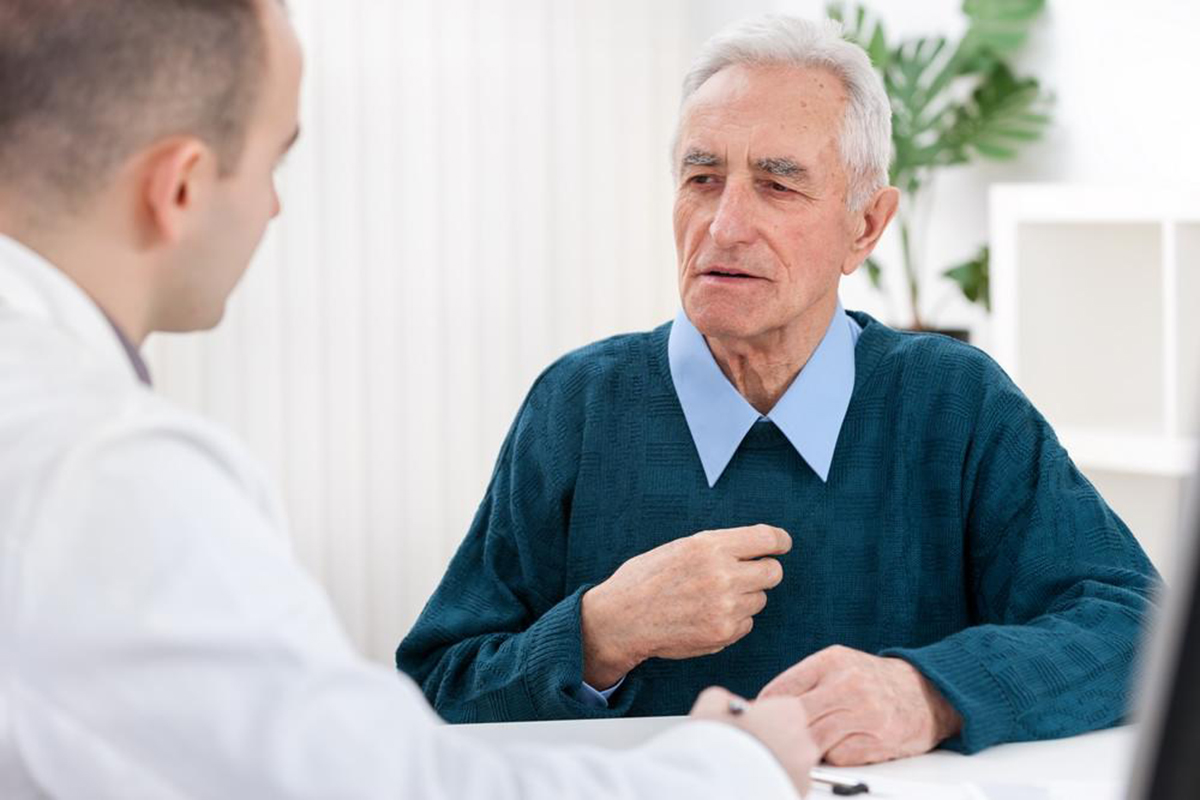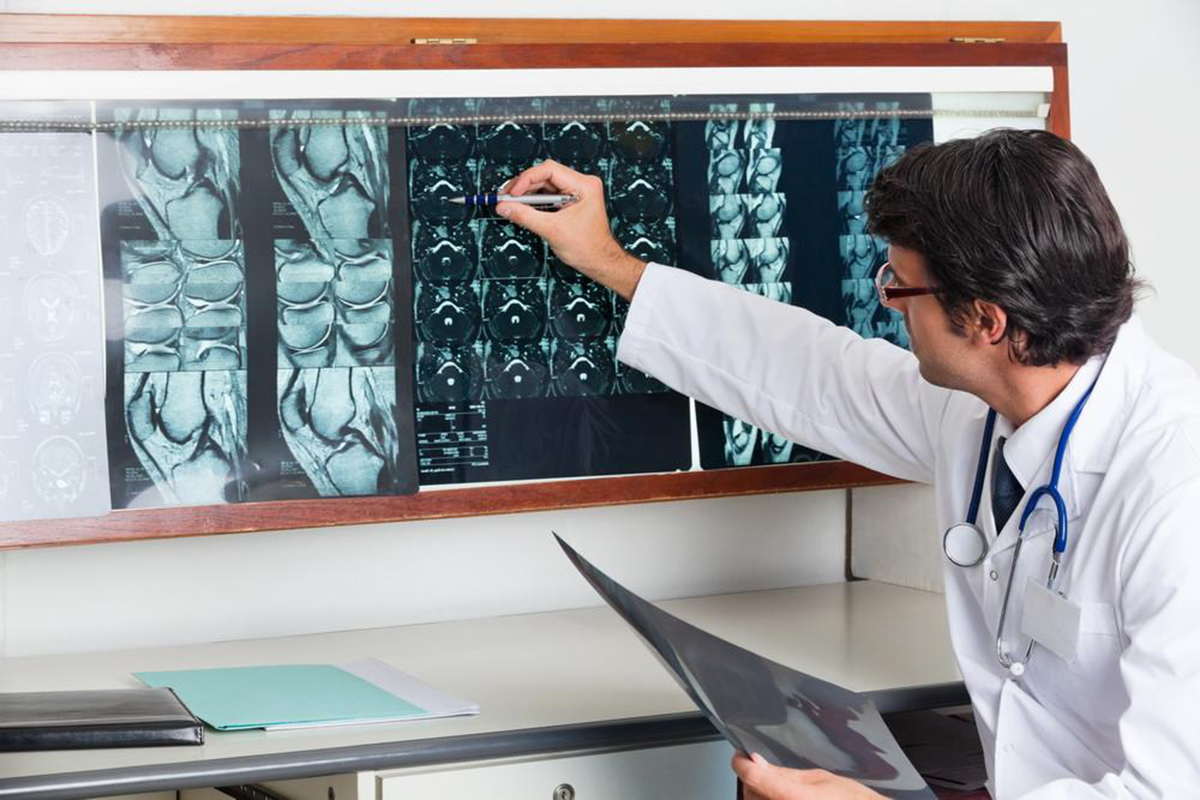An oncologist is a specialist physician who focuses on the prevention, diagnosis and management of cancer. The latter issue is dealt with by first engaging in a multli-disciplinary discussion between referring physicians and oncologists. At these meetings, each and every patient is discussed in order to determine the best way to manage them by looking at factors such as age, gender, financial position, emotional and psychological issues, physical well-being and prognosis.

Changes in the management of cancers are occurring rapidly with new advances and new medications becoming available. Patients who are diagnosed with cancers that are aggressive, progress rapidly and for whom no standard care treatment options are available, should become eligible to be enrolled in clinical trials where new medications are being tested.
Training
A doctor wanting to specialise in oncology must first complete their undergraduate training, in order to become a qualified medical doctor, which takes 5-6 years to complete depending on which country you are studying in. A further 1-2 years needs to be spent training during an internship phase that needs to be completed in order to be allowed to specialise further.
A qualified doctor can then apply for an oncology position at an institution that offers the residency programme. Now, again, depending on where you want to study, oncology can be a 4 year residency programme that needs to be completed before one can sub-specialise further. In countries like the United States, oncology is broken up into 3 sub-disciplines that can be trained initially and a doctor may then decide to sub-specialise further.
The 3 main oncology branches are as follows:
- Medical oncology, which deals with the treatment of cancers with immunotherapy, targeted therapy, hormonal therapy and chemotherapy.
- Surgical oncology, which focuses on the treatment of cancers through surgical interventions.
- Radiation oncology, which concentrates on the treatment of cancer with radiation therapies and techniques.
How cancers are diagnosed and staged
Diagnostic and staging investigations on cancers are done depending on how aggressive the cancer is (malignancy) and where it's located in or on the body.
READ Passion, Affluence, Respect: The Real Incentives behind Choosing a Medical Specialty
Solid tumours
- Blood is drawn from the patient to test for tumour markers such as beta human chorionic gonadotropin (beta-HCG) if present in men and non-pregnant women, alphafetoprotein (AFP) in liver cancer, carcinoembionic antigen (CEA) for intra-abdominal organ cancers such as the colon, prostate specific antigen (PSA) and CA 125 (for ovarian cancer).
- Imaging studies such as ultrasonography, X-rays, computerised tomography (CT) scans, positron emission tomography (PET) scans and magnetic resonance imaging (MRI) to detect any growths or changes in the body.
- Biopsies taken from tumours for histopathology and immunohistochemistry (IHC).
- Invasive procedures such as a cystoscopy (bladder), colonoscopy, upper gastrointestinal endoscopy (stomach and duodenum), naso-pharyngoscopy and direct and indirect laryngoscopy to visualise and take biopsies of cancers.
Blood cancers
- Blood tests from patients including a peripheral smear, red cell index, haemoglobin, platelet and total leucocyte count.
- Bone marrow studies including aspiration, flow-cytometry, fluorescent in-situ hybridisation (FISH), cytogenetics and molecular studies.
Lymphomas
- Blood tests including kidney functions, lactate dehydrogenase (LDH) and uric acid levels
- Excision biopsy of lymph node for molecular studies, histopathological examination and IHC.
- Bone marrow biopsy.
- Imaging tests like CT and PET scans.
The Daily Schedule Of An Oncologist
Oncologists routinely consult with their hospital patients on a daily basis and may even see them up to 2 times a day. These patients will be managed until the specialist deems them fit to be discharged home, or to be referred to facilities such as step-down hospitals for further management or to hospice facilities for palliative care.
Oncologists will also provide on call services after hours and on weekends. They may be on call 2-3 times per week for the hospital they work at, and they will consult with referring healthcare workers about known cancer patients who may be dealing with acute problems such as severe, intractable pain that isn't controlled with the medication they are using.

Monday
Usually the week starts by dealing with administrative duties such as confirming meetings with medical representatives, hospital staff and management as well as non-clinical issues.
The oncologist will then start consulting with patients who will be examined and then sent for the appropriate tests and investigations which need to be done.
Tuesday
Blood tests, imaging reports and biopsy results are reviewed and the oncologist will then follow up with patients and discuss the findings of these tests. The patients may also have to be referred for trauma counseling as the diagnosis of cancer, especially of an aggressive type that gives a poor prognosis, can be difficult to deal with.
Wednesday
The oncologist will be meeting with specialists from other medical and surgical disciplines such as gynaecology, urology, general surgery, gastroenterology, dermatology, etc. to discuss treatment plans for patients who have cancers in the areas of the body relating to the mentioned disciplines.
This is a very important time as each patient will need a different treatment plan depending on certain factors, like those mentioned earlier.
READ Questions To Ask Yourself When Wanting To Study Medicine
Thursday
Oncologists will use this day to manage patients who need administration of intravenous chemotherapeutic drugs for their specific cancers. These drugs need to be prepared by the specialists in a specific way as they will need to work in fume cupboards and have to use protective clothes and equipment to prevent injury.
This day can also be used for the training of under- and post-graduate students and doctors, if the specialist is involved with the academic curriculum of the medical school offering the training. Clinical administrative work will also be handled on this day such as filling in of motivation letters to medical insurance companies, providing patient feedback to referring physicians and filling in chronic scripts for patients.
Friday
This day is used to consult and manage patients and to finish up any pending administrative issues. Once everything has been finalised, the specialist can end their work week.
If an oncologist in working over the weekend, then they will be responsible for the care of their patients and of those who have been discussed with the specialist by their colleagues.
- en.wikipedia.org/wiki/Oncology
- Photo courtesy of Shutterstock.com


Your thoughts on this